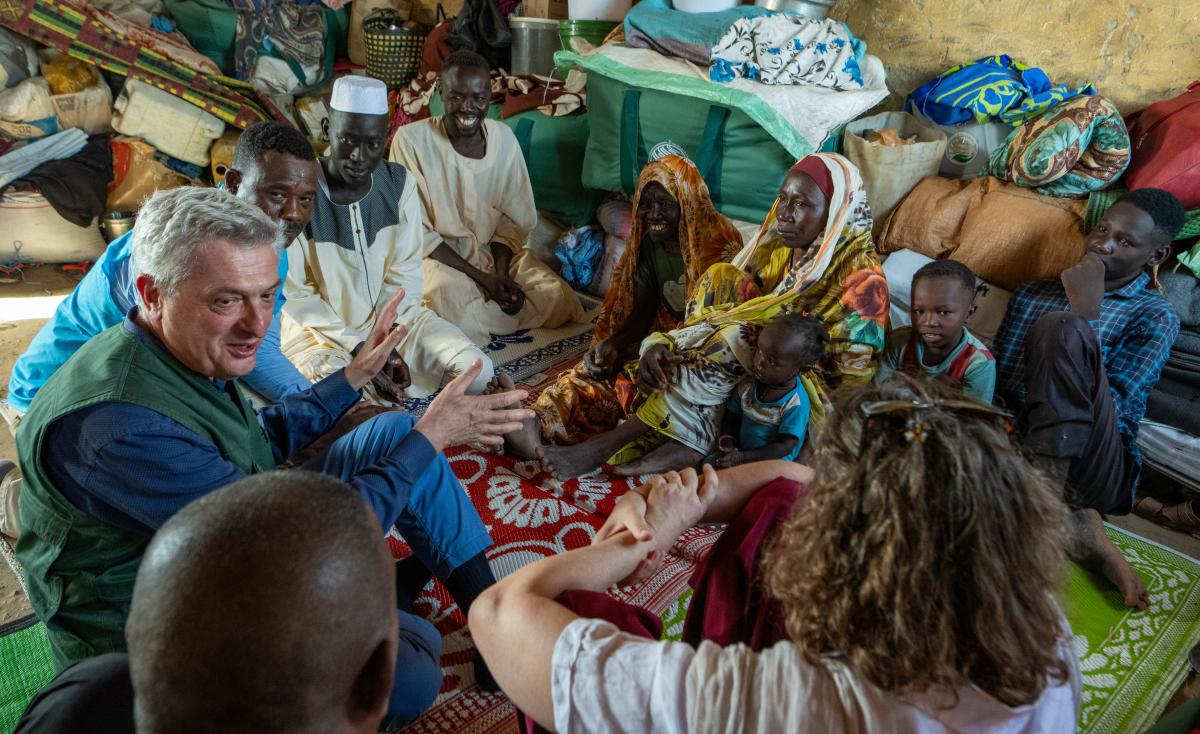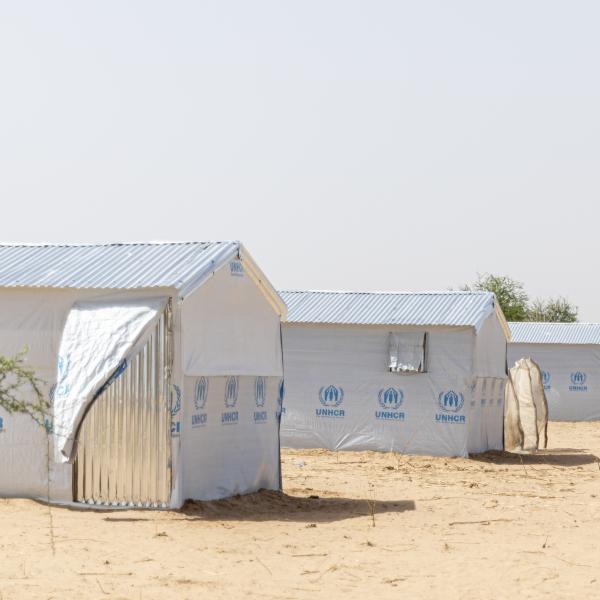9 million people have been displaced since war broke out in April 2023, making Sudan the world's most pressing displacement crisis, as recently stated in the UNHCR’s Global Trends Report 2023.

UN High Commissioner for Refugees Filippo Grandi recently visited refugee camps and displacement centres in Kosti, in Sudan’s White Nile State, where over a million people have sought shelter since the fighting started. It was his second visit to Sudan since war broke out. The level of suffering was truly unconscionable, said Grandi: “Sudan is the definition of a perfect storm: shocking human rights atrocities, with millions uprooted by this insane war and other wars that came before it. A terrible famine is looming, and severe floods will soon hamper aid deliveries even more. We are losing a generation to this war, yet peace efforts are not working.”
Indeed, displaced people are living in abysmal conditions at risk of disease in overcrowded refugee camps, former schools and other makeshift sites.

The High Commissioner is particularly concerned about the escalating violence in El Fasher, North Darfur. And more atrocities have been reported against civilians in Al Jazira State. Grandi said that many civilians are trapped in conflict flashpoints, unable to flee for safety elsewhere: “Civilians did not start this war, yet they pay the price for it. We need the warring parties to stop targeting them, and to immediately facilitate humanitarian access to communities that require life-saving aid,” said Grandi.
2 million people (about the entire population in French-Speaking Switzerland/Romandie) have sought safety in neighbouring countries, mainly Chad, Egypt and South Sudan. This is causing major problems for hosting communities. UNHCR is calling for urgent international support as the humanitarian crisis in eastern Chad reaches a critical point. The town of Adre for example, originally home to 40,000 people, is struggling to accommodate a sixfold increase in its population. Overcrowded and unsanitary conditions have led to a severe health crisis there, with over 1,200 cases of Hepatitis E reported, including three fatalities. The impending rainy season, expected between June and September, threatens to exacerbate this crisis, potentially leading to outbreaks of waterborne diseases such as cholera. Security is also a growing concern with increasing incidents of looting, vandalization of humanitarian structures and trafficking of drugs and alcohol. Tragically, a refugee girl was recently killed by a stray bullet.
UNHCR and partners have extended existing refugee settlements and established six new ones in Chad, as well as building two villages for Chadian returnees. All these sites are equipped with essential services and infrastructure, including family shelters, mobile clinics, water points, sanitation and education facilities known as temporary learning spaces. However, these efforts are not enough to meet the overwhelming needs.
UN High Commissioner Filippo Grandi praised the generosity of the host communities in welcoming those fleeing and asked for international donors to continue and step up their own support to the humanitarian response. If the fighting in Sudan does not stop, many more people will cross the borders. This would drastically worsen the humanitarian crisis, Grandi is convinced. “Military leaders, and those with influence over them, must make peace a priority. Without it, people will keep fleeing into neighbouring countries, like Chad and South Sudan, which are only just emerging from their own conflicts and simply cannot cope with millions more mouths to feed. The stability of the region is at stake.”